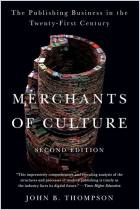In 2018, venerable brick-and-mortar bookseller Barnes & Noble faced declining revenues and lacked a recovery plan. New CEO James Daunt came aboard in 2019 to rescue a company on the brink with a daring new strategy: sell books you love to customers who love books. Daunt cast doubt on industry-wide practices and gave power to frontline workers as he began rebuilding brand trust. In his Substack column, musician and cultural critic Ted Gioia tells the inspiring story of an improbable corporate comeback led by a man whose first act was to question the received wisdom of his business.
Barnes & Noble is making a brick-and-mortar comeback.
The American bookstore chain Barnes & Noble (B&N) suffered a steep revenue decline just a few scant years ago. Today the chain is growing again, planning to open more stores, and succeeding in locations where Amazon’s forays into brick-and-mortar failed.
B&N opened in 1886 and prospered for more than a century, but it got clobbered in the transition to digital. It moved online to compete with Amazon and created an eBook reader that never caught on well. Even though Borders, its only significant competitor in brick-and-mortar bookselling, closed in 2011, B&N couldn’t turn its business around.
The company lost $18 million in 2018 and laid off 1,800 staff members, leaving store operations in the hands of part-timers. After its then-CEO faced sexual harassment accusations, B&N fired him. Books sales plummeted, e-reader sales slid more than 90%, and the stock price tanked by more than 80%.
B&N had become “a lousy bookstore,” dedicating much of its sales area to toys...


















Comment on this summary